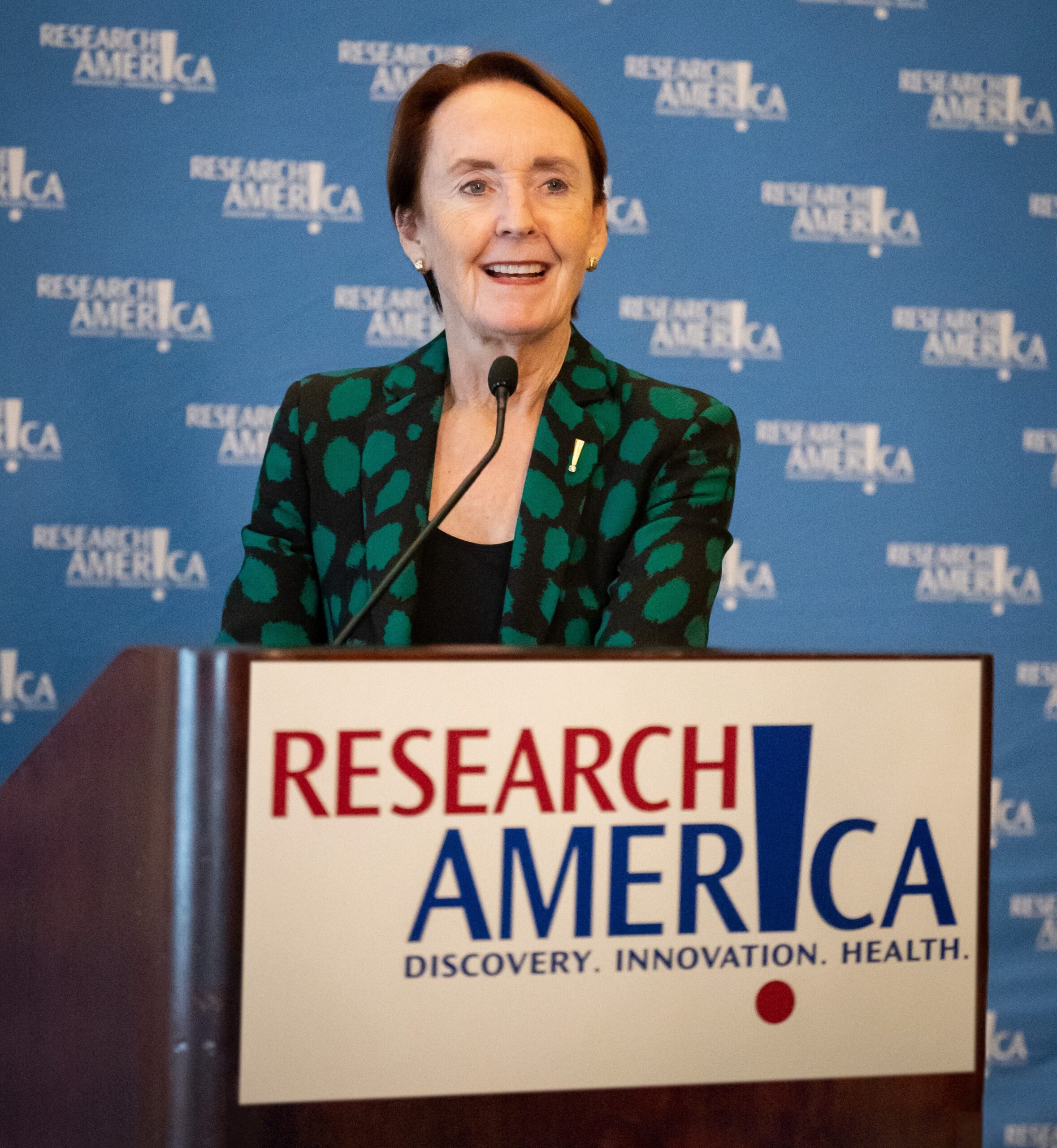A Step Backward

The Biden Administration and congressional leaders reached an agreement on the last six funding bills for FY 2024 late Monday night and released those bills this morning. The NIH received a $378 million cut while other key research agency’s budgets remained essentially flat.
There are at least two distinct conclusions we can draw from looking at the funding levels for NIH and the other critically important research and public health agencies funded under the “Labor-HHS” bill: 1) our champions in Congress – bolstered by the data and personal stories advocates shared – worked extraordinarily hard to protect these agencies given the constraints they were under (the threat of deep, across-the-board budget cuts and a stifling cap on non-defense funding); and 2) those constraints are undercutting never more needed scientific, technological, medical, and public health progress. See our statement and updated budget chart.
The present does not dictate the future. The challenges we face as a nation demand bold investments in science, technology, and public health. And that demands bold advocacy. Watch this space for updates and opportunities.
Researchers in the Public Eye: PARADE, the once-ubiquitous Sunday morning magazine, published a cover story 20 years ago on this date, profiling researchers who were not generally in the public eye, but yet whose work stood to benefit people everywhere. The story profiled such brilliant researchers as Robert Langer, a professor at Massachusetts Institute of Technology (MIT), even then a superstar and still doing great work. Take a step back in time to read this story.
The story included results from a public opinion survey Research!America commissioned with PARADE. It is fascinating to see that then as now Americans strongly believe the U.S. should be a world leader in health research. In 2020, 91% of Americans said they believed it was important. In a similar question from our January 2024 survey, 89% of Americans agreed. Alas, the likely-to-be-final budget agreement will not help to assure our global leadership.
There were other PARADE cover articles on medical research two decades ago – then as now, it was important for policymakers to see the strong support of the American public for research. It’s important for policymakers today to see current public survey research, which is where you come in. Since we don’t have PARADE magazine to help spread the word, it’s all of us advocates who must do so!
Protecting Technology Transfer: If you’ve read recent letters, you know that Research!America has expressed deep concerns about a new policy framework the National Institute of Standards and Technology has proposed that would weaken the technology transfer link so critical to our nation’s science and technology pipeline. Twenty-eight members of Congress from both sides of the aisle recently shared their opposition to the framework in a letter to President Biden. Check it out and thank your representative(s).
For a ready example of the societal significance of technology transfer, consider this academic/private-sector partnership that is working to realize the potential of breakthrough cybersecurity technology. If you’d like to learn more about our ongoing Bayh-Dole advocacy efforts, please contact Ellie Dehoney.
Alliance Members-Only: Bayh-Dole will be among the topics covered during our March alliance members-only Zoom discussion at noon ET on Tuesday, March 26. FY24 and FY25 appropriations are also on the agenda: Erik Fatemi, appropriations expert and Principal at Cornerstone Strategies, is joining us to help sift through all the complexities. If your organization is a Research!America member, email Jacqueline Lagoy for the registration link.
Research!America Board Members in Action: Board chair, Sudip Parikh, and fellow board member, Dario Gil, engaged in a wide-ranging conversation about the State of Science in America report, moderated by John Hamre, President and CEO of the Center for Strategic and International Studies. Sudip said in regard to creating a partnership between the science and national security communities: “You actually have to spend time together and be authentic in the dialogue.” Dario spoke about recent gains made by China in science and technology investment while U.S. federal investment gains have been modest. “That worries us because that is the core fuel that enables this whole ecosystem to be successful,” he said. View their discussion.
Civic Science Training: Our own Jenny Luray, Senior Vice President of Strategy and Public Engagement, and Fanuel Muindi, Senior Fellow for Civic Science, were featured in a Q&A with Elizabeth Christopherson, President and CEO of the Rita Allen Foundation, which has generously supported our early career science microgrant program for the past six years. As Jenny states, “we’ve seen first-hand what skills are needed to work meaningfully with community members and local public officials. We’ve also seen the barriers our micrograntees face incorporating this work into their training…We are convinced more than ever that such training must be part of the graduate school curriculum.“ Click here to read more about this important conversation.
NIMH, 75 years Strong: The National Institute of Mental Health (NIMH) is turning 75 this year! For 75 years, NIMH has worked to transform the understanding and treatment of mental illnesses by supporting basic and clinical research—bringing hope to millions of people. Please join us on Thursday, March 28 at 4 p.m. ET for a special alliance discussion featuring Dr. Joshua Gordon, Director of the National Institute of Mental Health. Dr. Gordon will share his thoughts on the Institute’s evolution and its current focus at a time when mental health is a front-and-center concern in the U.S. and globally. Register now on Zoom.




